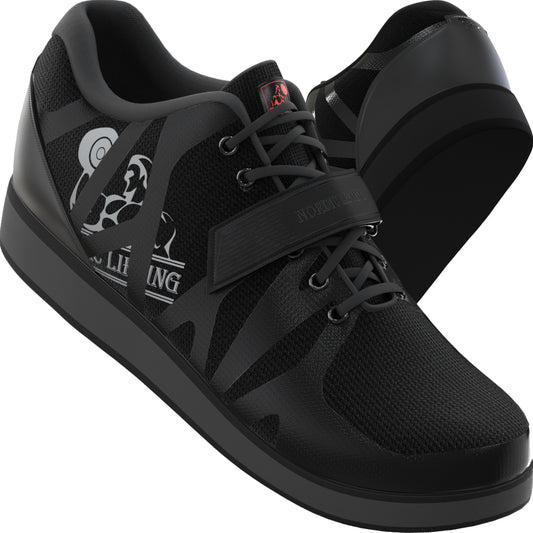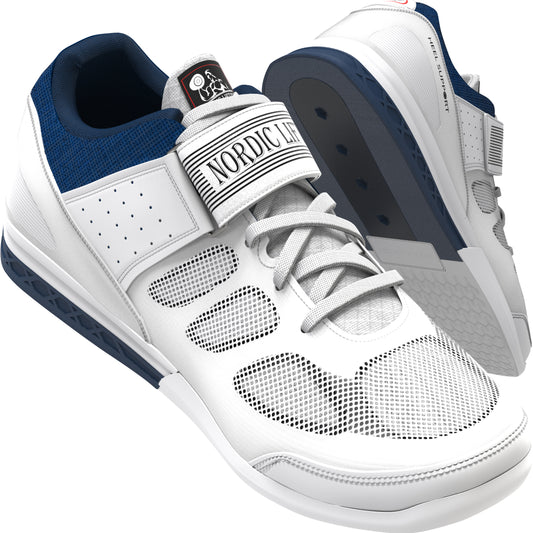If you want to get strong without lifting weights, there are a variety of options available that do not require heavy exertion. Continue reading to learn how to build muscles without lifting weights.
Body-weight workouts are beneficial to almost everyone. Olympic gymnasts and other world-class athletes use them as a key source of strength. The weight of your own body provides ample resistance to help you improve your fitness and tone your muscles.

Ways to Become Stronger Without Lifting Weights
Exercising Using Your Body Weight
When you don't use weights to create muscle, your body becomes the "weight" that you can use. A pushup, for example, uses your body's weight to create muscle by pushing your body off the floor.
- Push-Ups and Pull-Ups-These are excellent exercises for building upper-body muscles.
- Squats-You should start squatting if you wish to strengthen your leg muscles. It's the best exercise for building hamstrings, quadriceps, and calves.
- Dips-Dips can assist you in achieving those coveted killer arms.
- Crunches-Crunches work your abdominal muscles hard. This strengthens your core and helps you achieve a toned, muscular appearance.
- Sit-Ups-Sit-ups are a multi-muscle workout that strengthens your abdominal muscles. But it also works your chest, hip flexors, neck, and lower back muscles.
Alter between the limbs.
- Many workouts require you to use both your arms and legs at the same time. When you just use one at a time, though, you work the muscles in that limb harder, which helps you gain muscle. When practicing exercises that require both arms, alternate which one you use. For example, do pushups with your left arm first, then your right.
Increase the difficulty level.
- Push until you can't do another rep when doing a bodyweight exercise, but once you can do 15 reps each time, it's time to move up to a harder activity. More difficult workouts put more strain on your muscles than just repeating the same activity.
Try to work out at least three times every week.
- If you want to gain muscle, set a workout routine for Monday, Wednesday, and Friday. To build muscles, strive for 5 to 12 reps per set when doing exercises. Work your way through each exercise until you've given everything you've got. You don't want to push yourself too hard because it could injure your muscles. You should, however, challenge yourself each time.

Cardiovascular Exercises for Muscle Growth
Tighten your abdominal muscles.
Make sure you're tightening your core muscles while undertaking cardiovascular exercise as if you're bracing for a punch. This will help you build muscles across your entire core. This will aid in the development of endurance muscle fibers.
Running
- To gain muscle, you don't need to lift weights. Walking or running every day, for example, can help you develop muscles in your legs, core, and arms. It can also help you lose weight and show off your muscles.
Swimming
- Swimming is a wonderful full-body workout, so you'll grow muscles while participating in this activity. To begin growing muscles throughout your body, try swimming for 30 to 45 minutes most days of the week.
Cycling
- Other workouts can be chosen based on your preferences. The majority of endurance exercises will aid in muscular development. Try cycling or cross-country skiing, for example. Rowing is also a viable option. To help increase muscle and endurance, exercise for at least 30 minutes most days of the week.

Changing Your Way of Life
Eat More Protein
- Several studies have shown that consuming a high-protein diet can help you gain muscle mass and strength. Increase the number of good foods you consume. Rather than arbitrarily ingesting excess calories, aim to eat more protein and vegetables. Switching from refined to simple carbs, such as fruit, can also be beneficial.
Get a Good Sleep
- Sleeping your way to muscles is a good idea. Make sure you get your recommended 8 to 10 hours of sleep every night. Sleep aids muscular repair and provides you with the energy to push through your workouts. However, if you want to boost muscle building, eat right before bed.
Drink Plenty of Water
- Aim for 8 to 12 cups (1.9 to 2.8 liters) of water every day. Your muscles require water to function properly. It lets you move and flex your muscles while also transporting vital nutrients to them. You should drink at least 8 to 12 cups of water per day, but if you exercise frequently or live in a dry or hot region, you'll likely need more.
Maintain a Low-Stress Level
- We're becoming a more stressed-out culture, and the previous few years have further added to the problem. You must keep your stress levels low if you want to gain muscle without doing weights. It's not easy to reduce stress, but yoga, meditation, and keeping a journal have all been shown to be beneficial.
Enhance your posture.
- One of the simplest ways to increase muscle mass is to sit up straight. Take a look at the advantages, and you'll find that core strength and good posture are mutually beneficial. You may strengthen your core by practicing proper posture, and vice versa.
How Long Does It Take to Build Muscle?
Muscle health is essential for optimal bodily function and strength. It may take weeks or months to detect muscular gain, but consistent exercise with resistance training, aerobic activity, and a healthy diet should enhance results.
At this rate, the average individual may build 25 pounds of muscle in a year. Of course, this isn't always viable in the long run. A more realistic rate of solid mass gain is roughly 5 pounds every six months.
Key Takeaways
It may be difficult to mimic your gym routine at home and get strong without weights, especially if you're used to lifting heavy weights, holding barbells, or moving weights on machines. The good news is that you can still lose weight even if you don't lift weights.
However, just because you exclusively do bodyweight workouts doesn't mean you won't grow muscle; it just means you'll have to switch up your training program. This could involve going slower through workouts or increasing the number of reps, sets, or time spent on each move.








